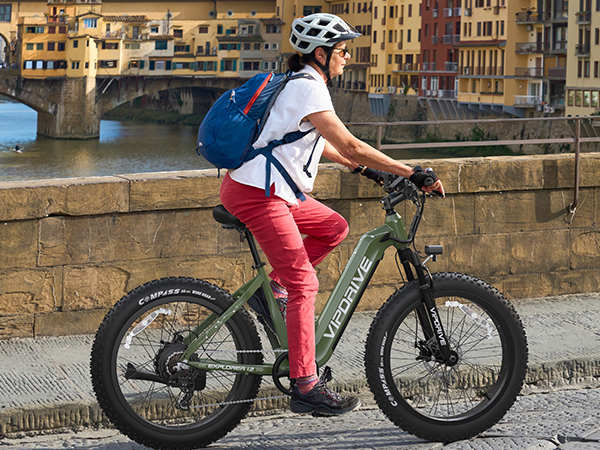With the increasing abundance of modern transportation tools, electric bicycles and motorcycles have gradually become popular choices for urban travel. Although they may be somewhat similar in appearance, there are significant differences in design concepts, performance, usage scenarios and other aspects. This article will explore the differences between electric bicycles and motorcycles in depth to help readers make more informed decisions when choosing travel tools.
First of all, electric bicycles and motorcycles are fundamentally different in power systems. Electric bicycles are usually equipped with electric motors and batteries, and are driven by electricity. Their battery capacity and motor power are relatively small, and the maximum speed is generally between 25-30 kilometers per hour. This design makes electric bicycles perform well in short-distance travel in cities, especially suitable for commuting to get off work, shopping for groceries or picking up children. In contrast, motorcycles use internal combustion engines as a power source, have higher horsepower and speed, and can usually reach speeds of 60 kilometers per hour or even higher, which is suitable for long-distance travel and high-speed driving. This power difference not only affects their usage scenarios, but also determines their legal status on the road.
At the level of laws and regulations, electric bicycles and motorcycles are also very different. Many countries and regions have relatively loose management of electric bicycles. Usually, no driver's license or license plate is required. Users only need to follow relevant traffic rules. This makes electric bicycles the preferred means of transportation for many people, especially young people and students. In contrast, motorcycles need to hold a corresponding driver's license and must be registered and insured. Although such regulations increase the safety of motorcycles, they also limit the popularity of motorcycles to a certain extent.
In terms of environmental protection and energy consumption, electric bicycles are undoubtedly a more advantageous choice. The electric drive of electric bicycles makes it almost free of pollutants during driving, while the internal combustion engine of motorcycles will emit certain exhaust gas, especially old models, whose emissions are even more worrying. According to statistics, the energy consumption per kilometer of electric bicycles is only 1/4 of that of motorcycles, and the charging cost of electric vehicles is much lower than the fuel cost of motorcycles. This makes electric bicycles not only environmentally friendly, but also more attractive in terms of economy.
Of course, electric bicycles are relatively weak in terms of endurance, usually able to travel 30-80 kilometers when fully charged, depending on the battery capacity and road conditions. Motorcycles have significantly better range, generally more than 300 kilometers, making them more practical for long-distance travel. Therefore, when choosing a means of transportation, users need to weigh their needs. If you are only going on a short trip, an electric bicycle is undoubtedly a more suitable choice; if you need to go on a longer trip, a motorcycle is more suitable.
From a safety perspective, motorcycles have relatively large safety risks. Due to their high speed, drivers are at higher risk in the event of an accident. Many motorcycle accidents are caused by drivers driving too fast or lacking safety protection measures. Although electric bicycles are limited in speed, they also need to pay attention to traffic safety, especially when intersecting with other vehicles, and drivers must remain vigilant. In addition, electric bicycles are lighter and have a relatively short braking distance, so they can stop faster in an emergency, reducing the risk of accidents.
In terms of comfort, motorcycles generally provide a better riding experience. Many motorcycles are equipped with more comfortable seats and shock absorption systems that can effectively absorb bumps on the road. The seats of electric bicycles are relatively simple, and the riding experience may be affected, especially on uneven roads. In addition, motorcycles have less wind resistance, especially when driving at high speeds, and can maintain a relatively stable driving state, giving the driver a more comfortable feeling.
There are also differences in the maintenance costs of electric bicycles and motorcycles. Generally speaking, the maintenance of electric bicycles is relatively simple, mainly to regularly check the status of the battery and motor and keep the body clean. Motorcycles, on the other hand, need to regularly replace the oil, check the brake system, tires and other parts, and the maintenance cost is relatively high. For some users who don't know much about cars, the simple maintenance of electric bicycles is undoubtedly more worry-free and labor-saving.
From the perspective of social acceptance, electric bicycles have been widely promoted and applied in cities in recent years. Many cities have set up special electric bicycle lanes to encourage citizens to use this environmentally friendly way of travel. However, motorcycles are often subject to certain restrictions due to their high speed and high noise, especially in the central area of the city, where many places have strict regulations on motorcycle driving.
In terms of purchasing decisions, consumers' psychological expectations will also affect their choices. The price of electric bicycles is generally low, generally between several thousand yuan and ten thousand yuan, which is suitable for the budget of most consumers. The price range of motorcycles is relatively wide, ranging from several thousand yuan to tens of thousands of yuan, especially some high-performance motorcycles, whose prices are surprisingly high. Therefore, consumers with limited budgets tend to prefer electric bicycles.
In the future development trend, both electric bicycles and motorcycles will usher in new opportunities and challenges. With the advancement of technology, the endurance and safety of electric bicycles are expected to be further improved. At the same time, motorcycle manufacturers are also constantly developing more environmentally friendly power systems, striving to reduce the impact on the environment while meeting consumer needs. It can be foreseen that future means of transportation will be more diversified to meet the needs of different consumers.
In summary, there are significant differences between electric bicycles and motorcycles in power systems, laws and regulations, environmental energy consumption, safety, comfort, maintenance costs and other aspects. Choosing a travel tool that suits you is not only a satisfaction of personal needs, but also a manifestation of responsibility to society and the environment. In this era of rapid development, understanding these differences and making wise choices will bring more convenience and fun to our lives. Whether choosing an electric bicycle or a motorcycle, the important thing is to enjoy the freedom and happiness brought by riding under the premise of safety.




